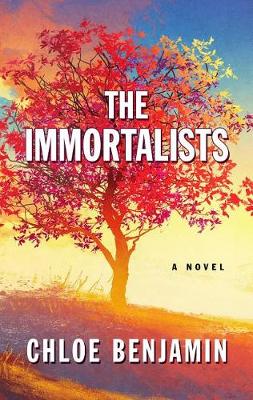Reviewed by girlinthepages on
+I liked how the book was divided into four distinct sections after the children's run in with the psychic, and when one sibling dies it picks up with the narrative of the next sibling with the closest "death date."
The characters were part of a large Jewish family and their parents immigrated to the US in the 1900s. It was super interesting to learn about their family's backstory and see how the Jewish faith and traditions were preserved in their family, especially through their mother, Gertie.
+I feel like I never really got to KNOW the characters, especially Simon- he felt very flat, one dimensional, and stereotypical. I was expecting to connect more with each sibling given how central each individual narrative was to the overall story.
+I did find it interesting to see how each sibling, in their own way, really fell pray to the self-fulfilling prophecy of their death date and how it really ruined each of their lives (even the ones who were given decades upon decades to live). There's also a secondary character who lurks in the background of each of their stories and ultimately plays a role in some of their deaths (even inadvertently) which I found to be an interesting plot element.
+I've seen a few other reviewers mention this, but there are a lot of graphic scenes in the beginning of the book that started to feel rather tasteless after a while and didn't feel like they added much to the story.
+I wish the book had focused more on the prophecies and the magical realism that seemed to be hyped up, but I found that aside from Klara's portion, it really just felt like a plain contemporary novel after the initial run in with the psychic.
Overall: An interesting concept for a novel, but nothing's super memorable that will make The Immortalists stand out among other literary fiction I've read.This review was originally posted on Girl in the Pages
Reading updates
- Started reading
- 30 March, 2018: Finished reading
- 30 March, 2018: Reviewed
